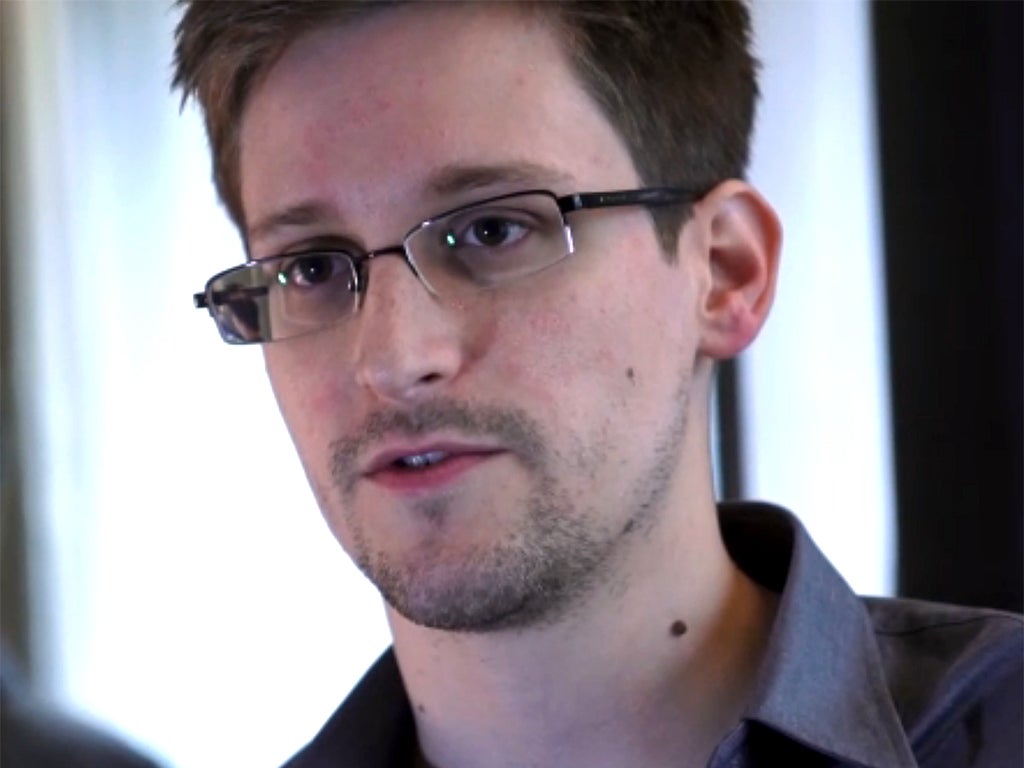Clegg and Cable disagree over Guardian’s role in Snowden leaks – while Jack Straw says newspaper showed ‘extraordinary naivety and arrogance’
The political row over whether revealing secrets behind GCHQ was a ‘public service’ or ‘gift to terrorists’ continues

Your support helps us to tell the story
From reproductive rights to climate change to Big Tech, The Independent is on the ground when the story is developing. Whether it's investigating the financials of Elon Musk's pro-Trump PAC or producing our latest documentary, 'The A Word', which shines a light on the American women fighting for reproductive rights, we know how important it is to parse out the facts from the messaging.
At such a critical moment in US history, we need reporters on the ground. Your donation allows us to keep sending journalists to speak to both sides of the story.
The Independent is trusted by Americans across the entire political spectrum. And unlike many other quality news outlets, we choose not to lock Americans out of our reporting and analysis with paywalls. We believe quality journalism should be available to everyone, paid for by those who can afford it.
Your support makes all the difference.Nick Clegg and Vince Cable have clashed again – this time over the role the Guardian played in publishing security leaks from former NSA contractor Edward Snowden
While the Business Secretary said in no uncertain terms that the newspaper had performed “a very considerable public service” in publishing the secret material, the Lib Dem leader told the BBC it was “not good at all” to publish information that might “help terrorists”.
Mr Cable had earlier said the revelations, which showed the extent of mass surveillance programmes operated by the US National Security Agency and Cheltenham-based GCHQ, meant a rethink was needed of how politicians oversee operations of Britain’s intelligence service.
Prime Minister David Cameron has said he is ready to listen to ideas on how to improve the system, though he believes the checks currently in place do a good enough job.
As Deputy Prime Minister, Mr Clegg said: “My view is that publishing information, technical information which can help terrorists work out how to do harm to us, of course, that is not good at all.
“But of course there is a legitimate, wider debate, an ongoing debate, about how do you make sure, as both the intelligence agencies and those who wish to do us harm, use these considerable new powers at their disposal in information technology, how do we make sure that all of that is held properly to account.”
Former Home Secretary Jack Straw, meanwhile, was far more outspoken in condemning the actions of the Guardian – making comments which will be broadcast in the BBC’s Sunday Politics Wales programme that tallied more with those of MI5 chief Andrew Parker.
Mr Straw said the “sense of power” the newspaper received from getting the secrets had “gone to their heads”.
“They are blinding themselves about the consequence and also showing an extraordinary naivety and arrogance in implying that they are in a position to judge whether or not particular secrets which they publish are - are or not - likely to damage the national interest.”
Sir David Omand, the former head of GCHQ who was once homeland security adviser to Number 10, said the leak of tens of thousands of files by the former US intelligence operative eclipsed the Cambridge spy ring, which saw five university students recruited as Soviet spies.
Earlier this week, MI5 head Andrew Parker warned that the Snowden leaks were a “gift” to terrorists, by exposing the “reach and limits” of the GCHQ listening post. His comments sparked criticism in some quarters of The Guardian's decision to give Snowden publicity.
But Mr Cable defended the newspaper, telling BBC Radio 4's Today programme: “I think The Guardian has done a very considerable public service. I think Mr Snowden's contribution is twofold, one of which is a positive one - which is whistle-blowing - and the other of which is more worrying, that a large amount of genuinely important intelligence material does seem to have been passed across.
“The conclusion that Nick Clegg came to and set out this morning is that we do need to have proper political oversight of the intelligence service and arguably we haven' t done until now.
“What they did as journalists was entirely correct and right. Mr Snowden is a different kettle of fish.”
Mr Snowden, who is in Russia, leaked information to the Guardian in May that revealed mass surveillance programmes such as the NSA-run Prism and GCHQ's Tempora.
Under the £1 billion Tempora operation, GCHQ is understood to have secretly accessed fibre-optic cables carrying huge amounts of internet and communications data and shared the information with the NSA.
Join our commenting forum
Join thought-provoking conversations, follow other Independent readers and see their replies
Comments